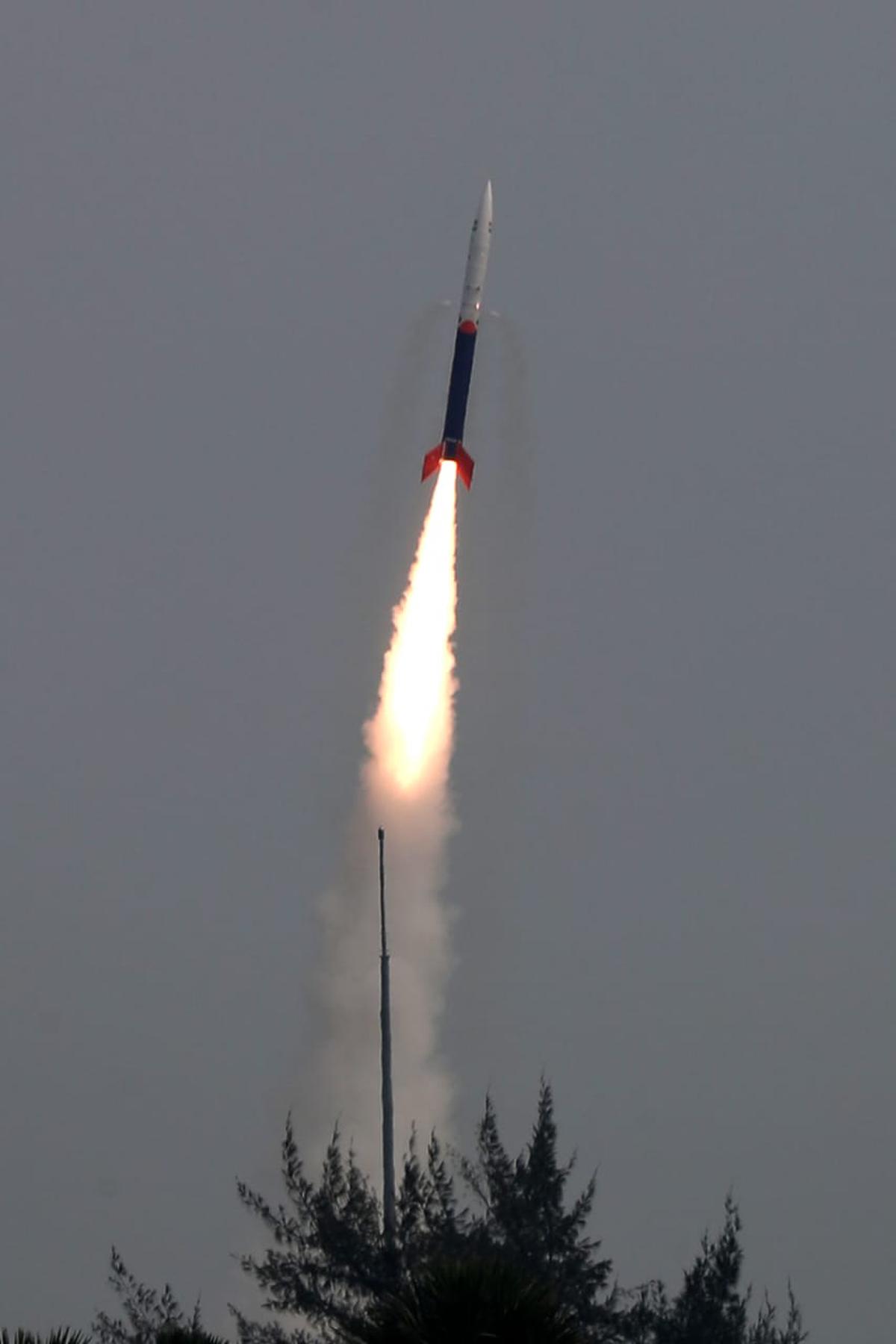In its maiden attempt, Skyroot Aerospace-designed Vikram-S, first privately developed rocket, lifted off from the Indian Space Research Organisation (ISRO) spaceport in Sriharikota, at 11.30 a.m. on November 18.
The rocket outperformed its exceptions and achieved an apogee of 89.5 km at a hypersonic speed of Mach 5. The vehicle reached space in 155 seconds
The mission’s aim is to launch Vikram–S (VKS), a single-stage solid fuelled sub-orbital rocket into space.
The three satellites riding piggyback on the 6-metre tall launch vehicle are from Chennai-based start-up SpaceKidz, Andhra Pradesh-based N-SpaceTech, and Armenian BazoomQ Space Research Lab. The mission is titled Prarambh (The beginning).
“I am happy to announce the successful completion of Mission Prarambh, The Beginning, by Skyroot aerospace,” Pawan Goenka, Chairman of the country’s space regulator, Indian National Space Promotion and Authorisation Centre (INSPACe),” said.
The rocket achieved an altitude of 89.5 km and a range of 121.2 km, exactly what was planned by Skyroot Aerospace, he said.
The rocket worked as planned and Skyroot Aerospace has demonstrated various capabilities of sub-systems that will go into the orbital launch vehicle, he added.
The rocket integrated into the launcher soared after lifting off at the prefixed 11.30 am from the sounding rocket complex at the Indian Space Research Organisation’s Satish Dhawan Space Centre, about 115 km from Chennai.
In a departure from the routine, November 18 mission was launched from the complex where sounding rockets were used by ISRO.
The Satish Dhawan Space Centre (SDSC) in Sriharikota has two launch complexes, each capable of providing complete support for vehicle assembly, check out, and launch operations for any kind of missions – Low Earth Orbit, Geosynchronous transfer orbit. PSLVs and GSLVs are launched from here.
Friday’s mission is considered to be a significant milestone for Skyroot Aerospace as it would help test and validate the majority of the technologies in the Vikram series of orbital class space launch vehicles, including many sub-systems and technologies that would be tested before lift-off and post-lift off phases of the launch.
Fun-Sat, a 2.5 kgs payload belonging to Chennai-based aerospace startup Spacekidz, has been developed by students from India, the United States, Singapore, and Indonesia.
The 545 kg Vikram launch vehicle consists of the Vikram II and Vikram III series.
It took Skyroot Aerospace about two years to develop and has been built using advanced technologies including carbon composite structures and 3D-printed components. The firm founded by Pawan Kumar Chandana and Naga Bharath Daka in June 2018 is a two-time national award-winning space startup, with 200 employees, and is the largest funded private space start-up in India with ₹526 crore raised as capital till date.
Skyroot co-founder Pawan Chandana said the Prarambh mission symbolizes a new India. This is a small step by our startup, but a giant leap for the Indian space sector.
Skyroot Aerospace became the first privately held company in India after the space sector was opened for the private players by the Centre in 2020, and named Vikram-S in a tribute to the father of the country’s space programme Vikram Sarabhai.














